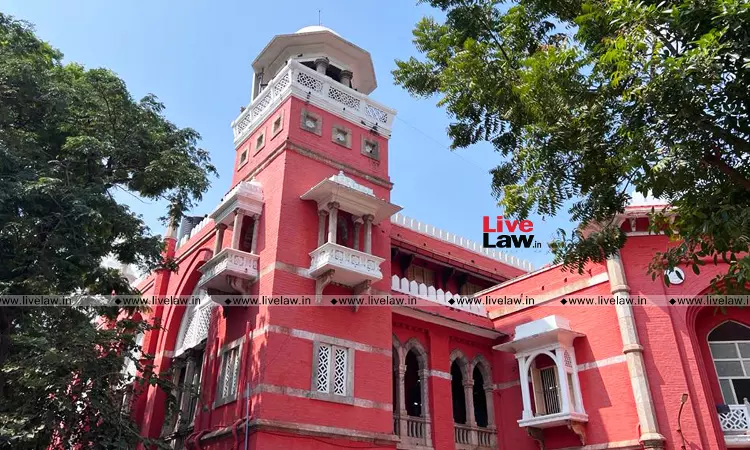- Home
- /
- High Courts
- /
- Madras High Court
- /
- 'National Security Policy Can't Be...
'National Security Policy Can't Be Stalled On Technicalities': Madras High Court Upholds Conversion Of Ordnance Factories Into Defence PSUs
Upasana Sajeev
29 Oct 2025 9:05 PM IST
The Madras High Court recently dismissed a petition filed against the decision of the Union Government's decision to convert production units of Ordnance Factory Board into seven Defence Public Sector Units. The bench of Justice R Suresh Kumar and Justice Hemant Chandanagoudar rejected the argument put forward by the employees' association that the decision was made even before...
The Madras High Court recently dismissed a petition filed against the decision of the Union Government's decision to convert production units of Ordnance Factory Board into seven Defence Public Sector Units.
The bench of Justice R Suresh Kumar and Justice Hemant Chandanagoudar rejected the argument put forward by the employees' association that the decision was made even before the conciliation failure report was received by the Governemnt. The court held that when such policy decisions were taken by the government for the security of the country, it should not be stalled on hyper-technical objections.
“In order to ensure such smooth functioning with more production capacity, if any policy decision is taken by the Union Government, after prolonged deliberations, even years back in the year 2020 itself, any follow up decision taken by the Union Government through its Cabinet could only be construed as an extraordinary policy decision taken mainly having the security of this Country in mind of such policymakers. When such decisions are taken, in order to stall those decisions, these kinds of hyper technical objections normally cannot be accepted,” the court said.
The court was hearing an appeal filed by the All India Defence Employees Federation and another employee, challenging an order of the single judge dismissing the challenge against the Union Government's decision.
The court noted that the Delhi High Court had previously dismissed a challenge against the Union Government's decision. The petitioner's counsel, however, informed the court that the present challenge was only on the point that the conciliation was pending between the employer and employees, and thus the employer could not have taken a conclusive decision, prejudicial to the interest of the employees. It was submitted that this aspect was not considered by the Delhi High Court and thus the decision could not be taken as a precedent to be followed in the present case.
The petitioners argued that the decision of the Union Government, during the pendency of the conciliation proceedings, was bad in law and was violative of the provisions of the Industrial Dispute Act. it was submitted that unless the conciliation failure report was accepted by the Government, it would still be considered pending. It was submitted that in the present case, the decision of the Central Government was taken two days before receiving the conciliation failure report.
The court noted that the matter was referred to the Conciliation Officer under Section 33 of the Industrial Disputes Act when the employees, including the petitioners, went on strike against the decision of the Government. The court further noted that though several rounds of conciliation had occurred, it did not yield any fruitful results. The court also noted that the petitioners had not attended some rounds of the conciliation meetings, which ultimately resulted in the failure of conciliation.
The court noted that, though the decision was taken on June 16, 2021 and the report of the Conciliation Officer was received on June 18, 2021, even prior to the order, three out of four employees' association had expressed their inability to participate in the conciliation proceedings. Thus, the court noted that there was no meaning to keep the conciliation proceedings pending.
The court noted that though technically the conciliation proceedings would be considered not pending only when the report of the conciliation officer reaches the Government, in the present case, it was not a mere administrative decision of the employer but a policy decision of the government.
The court observed that such technical objections would not stand in the way of the policy decision taken by the government for the country's security. The court was thus not inclined to entertain the appeal and dismissed the same.
Counsel for Appellant: Mr.Ravi Kumar Paul Senior Counsel for M/s.Paul and Paul
Case Title: All India Defence Employees Federation (AIDEF) v. Government of India and Others
Citation: 2025 LiveLaw (Mad) 384
Case No: W.A.No.3077 of 2025



